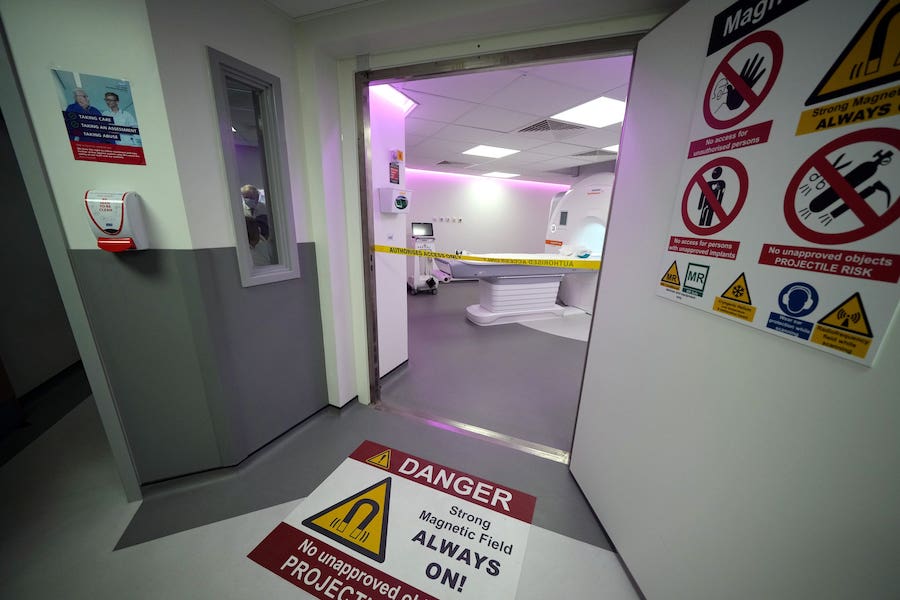Prostate screening ‘could save lives’ – the symptoms and risk factors you need to know
Do enough men know what the signs of the disease are?
There are more than 47,000 men diagnosed with prostate cancer every year in England but new research says using MRI scans can reduce deaths caused by the disease.
Current tests usually detect the level of the protein prostate-specific antigen (PSA) in the blood, but scientists say this has meant overdiagnosis and overtreatment of low-risk cancer.
The Reimagine study, by University College London, University College London Hospitals NHS Foundation Trust and King’s College London, invited 303 men aged between 50 and 75 to have a screening MRI and a PSA test.
Of those men, 48 (16%) had an MRI that indicated prostate cancer despite having a median PSA density – 32 of those had lower PSA levels than the current screening benchmark, meaning they would ordinarily not have been referred for investigation.
After NHS assessment 29 were diagnosed with cancer that required treatment, and three were diagnosed with low-risk cancer with no need for treatment.

Prof Caroline Moore, consultant surgeon at UCLH, chief investigator of the study and NIHR research professor, called the findings “sobering”.
She said: “Our results give an early indication that MRI could offer a more reliable method of detecting potentially serious cancers early, with the added benefit that less than 1% of participants were ‘over-diagnosed’ with low-risk disease.”
What is prostate cancer?
Prostate cancer is the UK’s most common male cancer. It affects the prostate – a walnut-sized gland that sits beneath the bladder and surrounds the urethra in people born with male sex organs. Its main purpose is to help produce semen (the fluid that carries sperm).
Prostate cancer can develop when cells in the prostate start to grow in an uncontrolled way.
While some prostate cancers grow quickly and spread, others grow too slowly to cause any problems and therefore will never need any treatment.
What are the risk factors
“Prostate cancer is a disease we tend to see in older age groups (over-50s), but there are exceptions, as with any form of cancer,” said Dr Sanjay Mehta, GP at The London General Practice.
According to Prostate Cancer UK black men are at a higher risk – one in four black men will get prostate cancer in their lifetime (compared to one in eight for other men).
The risk increases after the age of 45. Family history is important too; your father or brother has had prostate cancer or your mother or sister has had breast cancer, your risk is higher.
What are the symptoms?
Often there aren’t any signs in the early stages, so be aware of your own risk factors and chat to your doctor if concerned. Prostate Cancer UK have an online risk checker you can use too.
Mehta said to watch out for urinary symptoms and changes to how you urinate. “So frequency, where you need to go more often. Hesitancy, where you’re standing over the toilet bowl and a period of time will pass before you’re able to pass urine, and ‘dribbling’, where you’ve finished but find you’re still passing when you walk away.
“These are common in older men anyway. But if it’s new for you, and you find you’re having to go more often at night, and you’re having hesitancy or urgency, see your doctor.”
Other things to get checked include erectile dysfunction, blood in your urine, and any new and unexplained lower back pain. “Then there are general systemic symptoms, like lethargy, lack of appetite,” added Mehta.
“Again, these things often happen anyway, but if it’s a change for you and it’s been happening for a couple of weeks, see your doctor.”
How is prostate cancer diagnosed and treated?
First, your doctor will chat through your symptoms and history with you.
“The next step would involve an examination, including a rectal examination of the prostate,” said Mehta, before referral for further investigations.
“I appreciate this can put some men off seeing their doctor but it is a very helpful way of assessing things”.
After diagnosis, treatment depends on the stage of the cancer and what’s suitable for each individual, but it may include surgery or radiotherapy.
Caught early, prostate cancer is generally very treatable. And even with advanced prostate cancer, treatments have come a long way.
The Press Association
Latest posts by The Press Association (see all)
- 5 new books to read this week - March 26, 2025
- 6 things a physio wishes people over 60 would stop doing - March 25, 2025
- NHS reminder to 7.5m people as Covid-19 jab booking system opens - March 25, 2025
- The truth about cholesterol – what you need to know - March 25, 2025
- Prince William calls Dame Mary Berry a ‘national treasure’ in 90th birthday message - March 24, 2025




















